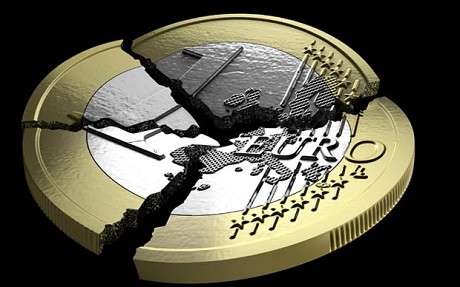Got PHYSICAL gold and silver?
Here is why:
Flashback:
– Greek Euro Exit: 60% Currency Devaluation, Default, Banking Sector Collapse
Here is what happened to Mexico:
– Hedge Fund Manager Kyle Bass Explains The New World Order (Panel Presentation):
???On Greece:
For those who think a 50% write-down on debt will fix Greece, you have lost your mind. It is only a full wipe-out of the non-TROIKA-owned debt that is the only mathematical way for Greece to have any chance.
…
Don’t believe these governments when they tell you everything is going to fine. The day before Mexico devalued by 60% they denied that they would ever devalue. They can and will never tell you the truth. Find your own numbers.
Here is what happened to Belarus:
– Belarus Devalues Its Currency By 56% Overnight, Against Every Currency Out There:
Luckily for those who held their “money” in the form of gold and silver, they just got an instantaneous 56% value preservation and a relative boost in their purchasing power with just one central bank announcement.
– Euro Officials Begin to Weigh Greek Exit as Euro Weakens (Blomberg, May 14, 2012):
Greece’s possible exit from the euro moved to the center of Europe’s financial-crisis debate, rattling markets as authorities in Athens struggled to form a government.
Meetings brokered by Greek President Karolos Papoulias were set to continue today after Syriza, the leading anti-bailout party, rejected a unity government following inconclusive elections May 6. That moved the country closer to a new vote, with at least five European central bankers broaching the once- taboo topic of its exit from the euro.
“We’re really getting to a denouement,” Michael O’Sullivan, head of portfolio strategy at Credit Suisse Private Banking, said today in a Bloomberg Television interview. “We’re getting to the part where a decision has to be made” on whether Greece leaves the 17-nation currency union, he said.
Euro finance ministers meeting today in Brussels may discuss the bailout for Greece, as well as the situation in Spain, where the government last week made a fourth attempt to clean up banks. Getting German Chancellor Angela Merkel to weaken her demand that debt cutting be the core of the crisis response will be a key objective of new French President Francois Hollande when the two meet tomorrow in Berlin.
The euro fell for the 10th day in 11, weakening 0.4 percent to $1.2872 at noon in Brussels, the lowest in three months. Bonds in Italy and Spain tumbled, with Spanish 10-year yields climbing to more than 6.2 percent today for the first time since Dec. 1. Each country’s spread against German 10-year notes jumped by more than 30 basis points.
Stocks Decline
The Euro Stoxx 50 Index declined as much as 2.4 percent to its lowest in almost five months after European Central Bank policy maker Christian Noyer today joined ECB officials Jens Weidmann, Patrick Honohan, Ewald Nowotny and Joerg Asmussen in discussing a potential Greek exit from the euro.
“Whatever happens in Greece won’t be a problem for the French financial sector,” Noyer told journalists today in Paris. “I don’t know a single group that will be placed in difficulty by an extreme scenario for Greece.”
German Finance Minister Wolfgang Schaeuble reiterated in Sueddeutsche Zeitung that member states seeking to hold the line on austerity in Greece could not force the country to stay.
The euro finance ministers, known collectively as the eurogroup, will convene in Brussels at 5 p.m. local time.
The European Commission isn’t considering easing the terms of the joint bailout for Greece from the EU and the International Monetary Fund, EU spokesman Amadeu Altafaj said, denying a report by Athens-based Real News.
No Movement
“I’m not aware of any discussions within the commission to grant new provisions, new concessions in the program” for Greece, Altafaj said by phone yesterday.
A Greek departure from the euro could trigger a default-inducing surge in bond yields, capital flight that might spread to other indebted states and a resultant series of bank runs. Although Greece accounts for 2 percent of the euro-area’s economic output, its exit would fragment a system of monetary union designed to be irreversible and might cause investors to raise the threat of withdrawal by other states.
Europe’s central bankers are discussing the possibility of a Greek departure and how to handle the fallout, Swedish Riksbank Deputy Governor Per Jansson said in an interview on May 11.
European Union Economic and Monetary Commissioner Olli Rehn said in Tallinn that the region is “certainly more resilient” to a possible Greek exit than it was two years ago, when the bloc would have been “massively underprepared.”
‘Akropolis Adieu’
“I still believe that Greece can stay in the euro and find the way to make sure that it respects its commitments,” Rehn said. “It would be much worse for Greece and Greek citizens, especially for the less well-off Greek citizens, if Greece did leave the euro than for Europe as such. Europe also would suffer, but Greece would suffer more.”
Under a story headlined “Akropolis Adieu, Why Greece Must Leave the Euro”, Germany’s Der Spiegel magazine today reported that the EU may provide funding for Greece even after a euro exit, citing plans formulated by Schaeuble’s ministry.
After elections in Greece and France signaled a backlash against the German-led agenda of scaling back spending to battle the debt crisis, officials across the region have re-tuned their rhetoric to emphasize growth and employment.
“Syriza won’t betray the Greek people,” party leader Alexis Tsipras said in a statement yesterday as Papoulias began a final bid to coax parties into a coalition. The failure to form a government has prompted concern that Greece may backtrack on pledges to cut spending as part of the bailout requirements negotiated since May 2010, so foreshadowing a euro withdrawal.
Merkel Setback
The latest defeat was suffered by Merkel yesterday in Germany’s largest state, North Rhine-Westphalia, where her Christian Democratic Union suffered its worst defeat there since World War II. The German Social Democrats, the main opposition party nationally, tightened their grip among German regional governments.


